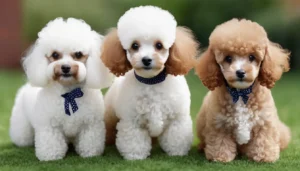A Tiny Toy Poodle is a delightful, playful, and affectionate small breed that makes an ideal companion animal for families and individuals alike. Known for being intelligent and trainable, the Tiny Toy Poodle is a toy dog that loves attention and thrives in a close bond with its owners. This breed is also often chosen for its hypoallergenic qualities, which means they shed very little, making them a great choice for people with allergies. Their adorable, cute appearance and friendly demeanor make them wonderful pets in any setting, including apartments, where they are truly apartment-friendly. Compared to a standard Toy Poodle, the Tiny Toy Poodle is a bit smaller in size but shares the same charming qualities, including their playful nature. The Tiny Toy Poodle is not to be confused with the Teacup Poodle, which is even smaller, often bred to fit in the palm of your hand, though it can come with more health concerns due to their extreme size.
The Tiny Toy Poodle, on the other hand, is typically more robust and healthy, making it easier to care for while still being compact enough for those who need a smaller companion. Like all small breeds, they require regular grooming to maintain their coat, as well as proper nutrition and exercise to keep them healthy. Socialization from a young age is important, as it helps develop their positive behavioral traits and makes them well-adjusted pets. Being trainable and eager to please, Tiny Toy Poodles can easily learn commands and enjoy a variety of activities with their owners, from daily walks to indoor games. Regular attention to their health needs and training tips ensures that this intelligent and affectionate breed remains a happy and loyal companion for years.
Table of Contents
Tiny Toy Poodle Full Grown

When a Tiny Toy Poodle reaches full maturity, they are a small, graceful, and charming dog that makes a perfect companion. Understanding what to expect from a full-grown Tiny Toy Poodle, especially their physical features and size, helps you care for them properly.
What Does a Full-Grown Tiny Toy Poodle Look Like?
A full-grown Tiny Toy Poodle is a compact and well-proportioned dog. They have a delicate frame with a soft, curly or wavy coat that requires regular grooming. Their bright eyes and expressive face contribute to their endearing appearance. This breed is known for its intelligent and friendly nature, and they carry themselves with confidence despite their small size. Tiny Toy Poodles are also affectionate and love to interact with their owners, making them wonderful pets.
Tiny Toy Poodle Size and Weight
The Tiny Toy Poodle stands about 9 to 10 inches tall at the shoulder when fully grown. This makes them one of the smallest in the Poodle family, alongside the Toy Poodle. In terms of weight, a full-grown Tiny Toy Poodle typically weighs between 4 to 6 pounds. Their small size makes them ideal for apartment living or small homes, as they do not need large spaces to move around.
Grooming Requirements
Grooming is an important aspect of caring for a full-grown Tiny Toy Poodle. Although they are a hypoallergenic dog breed, their curly coat requires regular brushing to avoid mats and tangles. Brushing at least twice a week is recommended to keep their coat healthy and clean. In addition to regular brushing, Tiny Toy Poodles need professional grooming every 4 to 6 weeks. Grooming helps maintain their appearance and also keeps their skin healthy by preventing dirt buildup. These dogs also require regular ear cleaning, as their floppy ears can be prone to infections.
Lifespan of Tiny Toy Poodles
The lifespan of a full-grown Tiny Toy Poodle generally ranges from 12 to 15 years. With the right care, nutrition, and regular vet checkups, these little dogs can live long, healthy lives. Their relatively long lifespan is one of the benefits of owning a small breed dog. Their longevity is supported by their generally healthy genetics, but like all dogs, they do have specific health concerns that owners should be aware of.
Poodle Temperament and Behavior
The temperament of a Tiny Toy Poodle is one of the main reasons they are such a popular dog breed. They are affectionate, loyal, and intelligent. These dogs are known for their friendly and playful personalities, which makes them great companions. Tiny Toy Poodles love being around their family and thrive on attention and interaction. While they are small, they are energetic and enjoy playing games. Their intelligence makes them easy to train, but they can also be a bit stubborn, so training consistency is key.
Training a Tiny Toy Poodle
Training a Tiny Toy Poodle can be an enjoyable experience due to their trainable nature. Since they are intelligent, they can quickly pick up new commands and tricks. Early socialization is important to ensure they are comfortable around other pets, children, and strangers. Positive reinforcement works well with this breed, and using treats or praise to reward good behavior will keep them motivated. It’s important to remember that while Tiny Toy Poodles are eager to please, they also need firm, consistent training to avoid developing bad habits.
Exercise Needs and Dog Care Tips
Even though they are small, Tiny Toy Poodles still require regular exercise to keep their energy levels balanced. Daily walks and playtime in the yard are ideal for meeting their exercise needs. Mental stimulation is just as important for them, and they enjoy interactive toys and games that challenge their brains. Small dog breeds like the Tiny Toy Poodle benefit from routine physical and mental activity to keep them happy and healthy.
Dog care tips for this breed also include providing a nutritious diet that supports their size and age. A well-balanced diet ensures they maintain a healthy weight and energy levels. Regular vet visits are essential for monitoring their health, as they are susceptible to certain health concerns such as dental issues or heart problems.
A full-grown Tiny Toy Poodle is a small yet mighty companion, known for its playful, intelligent, and affectionate nature. With the right care, attention, and training, they make wonderful pets. Their small size, combined with their hypoallergenic qualities, makes them perfect for families and individuals alike. If you’re ready to provide a loving home for a Tiny Toy Poodle, be prepared to enjoy years of companionship, fun, and joy.
Tiny Toy Poodle Size
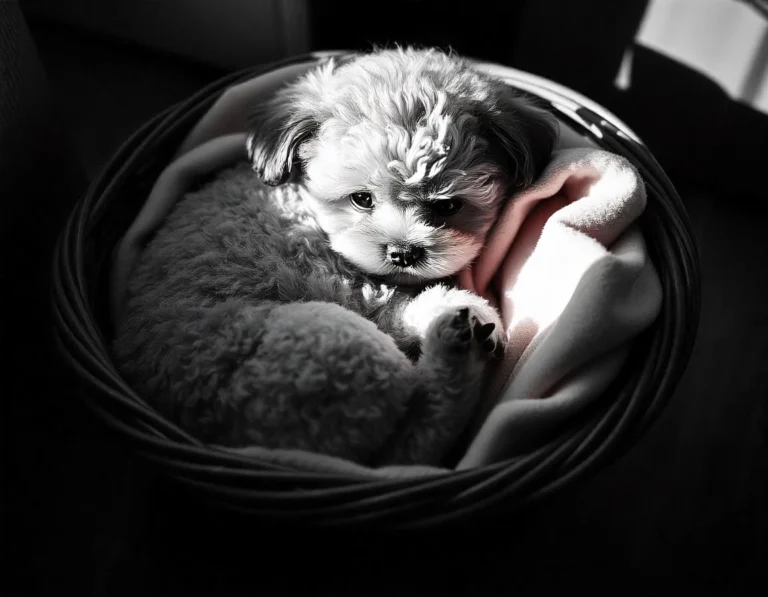
When considering adding a Tiny Toy Poodle to your family, understanding their size is key. These dogs are known for being small, compact, and easy to manage, which is one of the reasons they are such a popular breed. Below, we’ll cover the average size of a Tiny Toy Poodle, compare it with other similar breeds, and discuss why size is important when choosing this breed.
Average Size of a Tiny Toy Poodle
A full-grown Tiny Toy Poodle is a small dog breed, standing at around 9 to 10 inches tall at the shoulder. This makes them significantly smaller than both the standard and miniature poodles. In terms of weight, a Tiny Toy Poodle typically weighs between 4 to 6 pounds. Their small stature makes them ideal for individuals living in apartments or homes with limited space, as they don’t require much room to be comfortable.
Tiny Toy Poodles have a delicate, compact frame with proportions that are characteristic of a toy poodle. Despite their small size, they possess the same poodle characteristics, such as intelligence, energy, and a playful personality. This makes them not only a great pet but also easy to care for in terms of size and living space requirements.
Comparisons with Toy and Teacup Poodles
When comparing the Tiny Toy Poodle to other poodle varieties, it’s important to understand the differences in size. While both the Toy Poodle and Tiny Toy Poodle share similar heights, the Tiny Toy Poodle tends to be a bit smaller and more delicate in appearance.
- Toy Poodle Height: Typically stands at 10 inches tall at the shoulder and weighs between 6 to 9 pounds. These are slightly larger than the Tiny Toy Poodle but still considered a small dog breed.
- Teacup Poodle Size: Teacup Poodles are smaller than both the Toy and Tiny Toy Poodles, usually measuring around 6 to 7 inches in height and weighing under 4 pounds. However, teacup poodles are not officially recognized by many breed standards and may be bred for size, which can lead to potential health concerns.
The Tiny Toy Poodle falls right between the Toy and Teacup Poodle in terms of height and weight, offering a great balance for those who want a small, compact dog but are looking for something a bit more sturdy than the very small Teacup Poodle.
Why Size Matters for Choosing This Breed
The size of a Tiny Toy Poodle is one of the main factors people consider when choosing this breed. Their small size makes them perfect for those living in apartments or homes with limited space. Because they don’t require a lot of room to roam, they can easily adapt to various living situations. However, size also affects their exercise needs, grooming requirements, and health concerns.
- Exercise Needs: While Tiny Toy Poodles are small, they still require regular exercise to keep them healthy and happy. Their energy levels are often high, and they enjoy interactive play, walks, and training. Due to their small size, these activities are typically easy to manage in a smaller space.
- Health Considerations: Tiny Toy Poodles are prone to some health issues that can be influenced by their small size, such as dental problems and joint issues. They also tend to have longer lifespans than larger poodles, often living up to 12-15 years with proper care.
- Grooming: A smaller dog like the Tiny Toy Poodle doesn’t mean less grooming. They require regular brushing to maintain their curly coat and professional grooming every few months to keep them looking their best.
Choosing the right size of poodle is essential to ensure a good match for your living space, lifestyle, and ability to care for the dog’s specific needs. Tiny Toy Poodles offer a great middle ground between the larger Toy Poodle and the very small Teacup Poodle, making them an excellent choice for those looking for a compact dog that is playful, intelligent, and affectionate.
The Tiny Toy Poodle’s size makes them an excellent companion for many different lifestyles. Their small stature doesn’t affect their big personality, making them the perfect addition to families or individuals seeking a manageable, yet lively dog.
Tiny Toy Poodle Weight
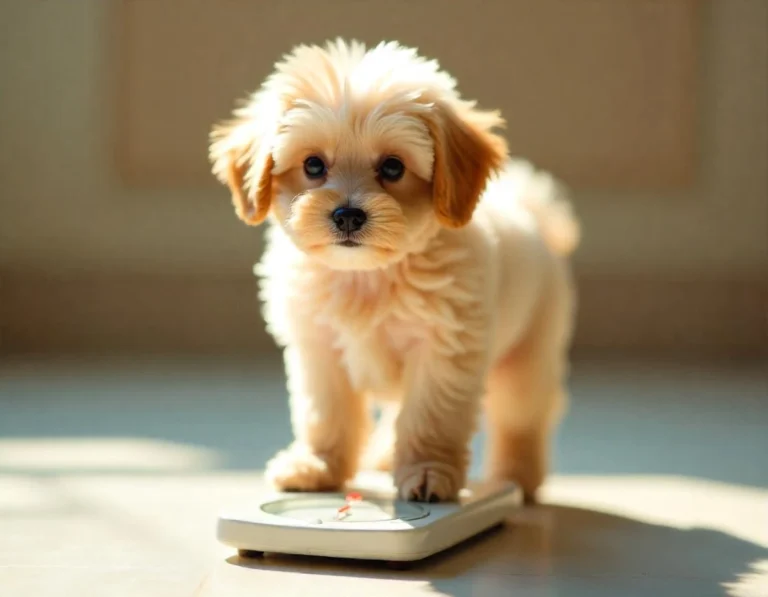
Understanding the weight of a Tiny Toy Poodle is important for maintaining their health and ensuring they grow properly. This small breed has specific weight expectations that help pet owners monitor their overall well-being. Here, we’ll discuss the average weight range for a Tiny Toy Poodle, how weight correlates with overall health, and the factors that can affect their weight.
Average Weight Range for a Tiny Toy Poodle
A full-grown Tiny Toy Poodle typically weighs between 4 to 6 pounds. This weight range is in line with the standards for toy breeds, as these dogs are meant to stay compact while maintaining a healthy and balanced weight. The weight of a Tiny Toy Poodle is essential in understanding their size and how they will fit into your home and lifestyle.
Because they are a small dog breed. Tiny Toy Poodles are much lighter than the standard or miniature poodles, which usually weigh between 10 to 15 pounds. This smaller weight contributes to their overall delicate appearance but does not lessen their lively and energetic personality.
How Weight Correlates with Overall Health
The weight of a Tiny Toy Poodle is closely linked to its overall health. Maintaining a healthy weight for a small breed like the Tiny Toy Poodle is essential to ensure they don’t develop issues related to being overweight or underweight. An unhealthy weight can lead to various health problems, such as joint stress, heart issues, and difficulty breathing.
When a Tiny Toy Poodle is at a healthy weight, they tend to be more active, have better mobility, and are less likely to experience complications from obesity. On the other hand, being underweight can indicate malnutrition or other health concerns that should be addressed by a veterinarian. Therefore, understanding your dog’s ideal weight range and working to maintain it is crucial to their well-being.
Factors Affecting Their Weight
Several factors can influence the weight of a Tiny Toy Poodle, including genetics, diet, exercise, and age.
- Genetics: Like all dogs, a Tiny Toy Poodle’s weight is largely determined by their genetic makeup. Some may naturally fall on the lighter side of the weight range, while others may weigh a bit more. However, it’s important to remember that the goal is to keep your dog’s weight within the healthy range established by breed standards.
- Diet and Canine Nutrition: The food you provide plays a huge role in maintaining your dog’s healthy weight. It’s essential to feed your Tiny Toy Poodle a balanced diet with the proper nutrients, and follow the recommended feeding guidelines based on their age, activity level, and size. Overfeeding or providing an improper diet can lead to weight gain and obesity in small breeds.
- Exercise: Tiny Toy Poodles require daily exercise to maintain their healthy weight. Regular walks, playtime, and training sessions help them burn off excess calories. Without enough physical activity, they may become sedentary and gain weight. On the other hand, too much exercise for a growing puppy can also lead to strain on their developing body, so it’s important to balance their exercise.
- Age and Puppy Growth: Puppies go through growth phases where they gain weight rapidly, but as they mature, their weight tends to stabilize. During the puppy growth stage, it’s important to provide appropriate nutrition to ensure they grow at a healthy rate and don’t become overweight. As adult dogs, their weight may fluctuate slightly, but it should always stay within the breed standards.
Understanding and managing the weight of a Tiny Toy Poodle is essential for their overall health and well-being. By providing a balanced diet, regular exercise, and routine vet check-ups, you can ensure your Tiny Toy Poodle stays in the healthy weight range and lives a happy, active life. Keeping an eye on their weight also allows you to detect any health issues early on, ensuring a long and healthy life for your small companion.
Tiny Toy Poodle Height
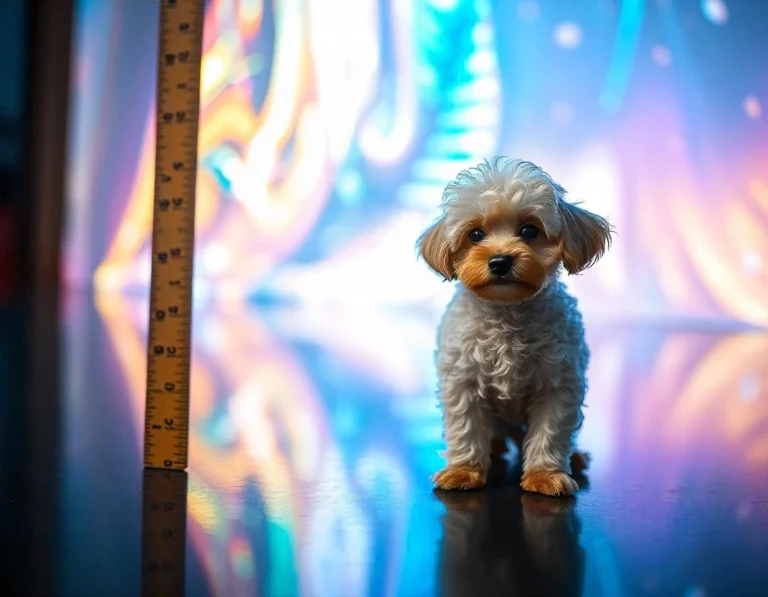
When considering a Tiny Toy Poodle as a pet, understanding their height is essential to ensure that their size fits well within your living space and lifestyle. Tiny Toy Poodles are one of the smallest in the poodle family, and their height is a key characteristic that sets them apart from other poodle varieties. In this section, we’ll explore the height range for Tiny Toy Poodles and how they compare to other poodle sizes.
Height Range for Tiny Toy Poodles
The average height for a fully grown Tiny Toy Poodle is typically around 9 to 10 inches tall at the shoulder. This makes them a very small dog breed, ideal for people who prefer smaller pets or have limited space. Their small size doesn’t affect their lively personality, and they maintain all the charming traits of poodles, such as being intelligent and playful.
Since they are a toy dog, Tiny Toy Poodles are naturally much smaller than standard poodles, which stand at over 10 inches in height. Their compact size makes them a great choice for apartment living or smaller homes, where a larger breed might not have enough room to move comfortably.
How Their Height Compared to Miniature and Toy Poodles
While the terms “Toy Poodle” and “Tiny Toy Poodle” are often used interchangeably, the Tiny Toy Poodle is typically slightly smaller than the standard Toy Poodle. Here’s how the height of a Tiny Toy Poodle compares to that of Miniature and Toy Poodles:
- Tiny Toy Poodle: As mentioned earlier, their height generally ranges from 9 to 10 inches. This makes them one of the smallest poodle types.
- Toy Poodle: The Toy Poodle typically stands between 9 to 10 inches tall as well, but in general, they can sometimes be slightly taller than a Tiny Toy Poodle, reaching the top end of that range.
- Miniature Poodle: Miniature Poodles are significantly taller, standing between 10 to 15 inches at the shoulder, making them much bigger than both the Tiny Toy and Toy Poodles.
Despite these small variations in height, all three types of poodles share many similar traits, including being highly intelligent, affectionate, and trainable. Their compact size and friendly demeanor make them wonderful companions, whether in small apartments or larger homes.
The height of a Tiny Toy Poodle is one of its most notable features, and their small stature makes them an ideal choice for those seeking a small breed with big personality. When comparing them to other poodle types, Tiny Toy Poodles are at the smaller end of the spectrum, making them a perfect fit for those who want a toy dog that’s both adorable and manageable in size.
Tiny Toy Poodle Lifespan

The lifespan of your Tiny Toy Poodle is an important factor to consider when welcoming this adorable dog breed into your home. Understanding how long they can live and the factors that affect their longevity will help you provide the best care for your furry friend.
Life Expectancy of Tiny Toy Poodles
On average, Tiny Toy Poodles can live anywhere from 12 to 16 years. This is quite impressive considering their small size, and it is one of the reasons why they are so loved as companion animals. Compared to other small dog breeds, Tiny Toy Poodles generally enjoy a long life expectancy. Their longevity is often attributed to their smaller size, which is known to contribute to a longer lifespan in dogs.
Factors That Affect Their Lifespan
Several factors can affect the lifespan of a Tiny Toy Poodle. Some of the most significant include:
- Poodle Health Issues: Like all dogs, Tiny Toy Poodles can be prone to certain health problems. Some common health issues for poodles include heart problems, dental disease, and patellar luxation (a knee issue). Regular veterinary checkups are important to catch these conditions early and ensure your dog stays healthy throughout their life.
- Genetics: A Tiny Toy Poodle’s genetics play a key role in determining how long they live. Dogs that come from a healthy line of poodles are more likely to enjoy a longer life. When choosing a Tiny Toy Poodle, it’s essential to work with a reputable breeder who focuses on the health of their dogs.
- Diet and Nutrition: Proper nutrition is vital for a Tiny Toy Poodle’s health. Feeding them high-quality food that meets their dietary needs will help maintain their health and increase their chances of living a long life.
- Exercise and Weight Management: Regular exercise and maintaining a healthy weight are important for any dog, especially for small breeds like the Tiny Toy Poodle. Obesity can lead to health problems, which can shorten a dog’s life expectancy.
- Aging in Toy Poodles: As your Tiny Toy Poodle ages, they may develop age-related health concerns. Regular vet visits and monitoring their overall health will help you address these concerns early, ensuring a better quality of life in their senior years.
How to Ensure a Long, Healthy Life for Your Tiny Toy Poodle
To help your Tiny Toy Poodle live a long and healthy life, follow these important pet care tips:
- Regular Vet Visits: Regular checkups with a veterinarian are essential for early detection and treatment of any potential health issues. A vet will also be able to provide guidance on your dog’s nutrition, exercise, and aging process.
- Proper Grooming: Tiny Toy Poodles require regular grooming to maintain their health. Regular brushing, nail trimming, and occasional baths will help prevent skin issues and keep them feeling their best.
- Mental and Physical Stimulation: Small dogs like the Tiny Toy Poodle are intelligent and playful. Engaging them in mentally stimulating activities, such as training sessions and puzzle toys, will keep them happy and prevent boredom.
- Healthy Diet: Feed your Tiny Toy Poodle a balanced diet that is appropriate for their size and age. Proper nutrition is essential for maintaining a healthy weight and providing them with the energy they need to stay active.
By paying attention to these factors, you can help your Tiny Toy Poodle live a long, healthy, and happy life. Remember that their lifespan can vary, but with proper care, they can be a part of your family for many years.
Tiny Toy Poodle Breeders

Finding a reputable Tiny Toy Poodle breeder is essential to ensuring that you get a healthy, well-adjusted puppy. Choosing the right breeder not only supports the health and well-being of the puppies but also ensures that you are adopting from an ethical and responsible source. Here’s what to look for when selecting a Tiny Toy Poodle breeder.
What to Look for When Choosing a Tiny Toy Poodle Breeder
When looking for a Tiny Toy Poodle breeder, it’s important to consider a few key factors to ensure you are getting a puppy that comes from a responsible breeding program:
- Health Testing and Canine Genetics: A reputable breeder will conduct genetic testing on the breeding dogs to ensure they are free from hereditary health issues that can affect the breed. This includes checking for common conditions in Poodles like hip dysplasia, eye problems, and heart issues. By focusing on genetics, the breeder aims to reduce the risk of passing on genetic disorders.
- Health Guarantee and Vaccinations: The breeder should provide a health guarantee for your Tiny Toy Poodle puppy, covering any health issues that may arise early on. Puppies should also be up-to-date on their vaccinations and vet checkups before they are placed in your home.
- Early Socialization: A good breeder will start socializing the puppies from an early age. Socialization is critical in helping Tiny Toy Poodle puppies develop into friendly, well-adjusted adult dogs. This includes exposure to various people, environments, and situations to ensure they grow up to be confident and affectionate.
Reputable Breeders and Ethical Breeding Practices
Ethical breeders care deeply about the health and welfare of the dogs they breed. They focus on maintaining the integrity of the breed, promoting responsible pet ownership, and ensuring their dogs are treated with love and care.
- Breeding for Health and Temperament: Ethical breeders prioritize the health, temperament, and well-being of the Tiny Toy Poodles. They should never breed for appearance alone. A good breeder focuses on maintaining the gentle, playful, and intelligent temperament that Toy Poodles are known for.
- Breeding Standards: Reputable breeders will follow established breed standards for Toy Poodles. This includes ensuring that the puppies are properly socialized, well-fed, and raised in a clean, safe environment. They also avoid overbreeding and only breed dogs that meet health and behavioral criteria.
- Transparency and Communication: A responsible breeder will be open and honest about their breeding practices. They will be willing to answer all your questions and will provide information about the puppy’s lineage, health history, and any other concerns you may have. Transparency is key to a good breeder relationship.
How to Choose the Right Breeder for Your Future Pup
Choosing the right breeder is a big decision, and it’s essential to take your time to find the perfect fit for you and your family. Here are some tips to help you make the right choice:
- Visit the Breeder’s Facility: It’s always a good idea to visit the breeder’s facility in person. This allows you to see the living conditions of the puppies and their parents. The breeder should have a clean and safe environment for their dogs, and the puppies should be well-cared for.
- Meet the Puppies’ Parents: Meeting the parents of the puppies is a great way to gauge the temperament and health of the puppies. You want to ensure that the parents are friendly, healthy, and well-socialized. This can give you a better idea of what to expect from your future Tiny Toy Poodle.
- Check References and Reviews: Before committing to a breeder, take the time to read reviews and ask for references from previous puppy buyers. Positive feedback from others can give you confidence in the breeder’s reputation and practices.
- Avoid Puppy Mills: Be wary of breeders who have multiple litters at once, offer puppies at unusually low prices, or fail to provide proper documentation. These can be red flags that indicate the breeder may be running a puppy mill, which often leads to poor living conditions and unhealthy puppies.
By carefully selecting a Tiny Toy Poodle breeder who adheres to ethical breeding practices, you ensure that you are bringing home a happy, healthy puppy. A responsible breeder will not only offer you a well-bred Poodle puppy but also provide support and guidance on training, pet care, and puppy adoption. Taking these steps helps ensure that your future Tiny Toy Poodle is a joyful addition to your family.
Asian Tiny Toy Poodle
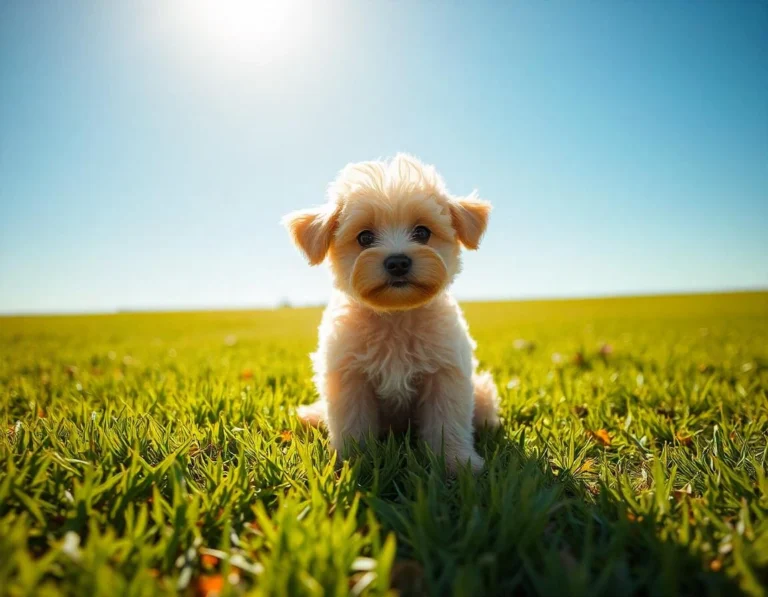
Tiny Toy Poodles are not only popular in the West but have also found a place in homes across Asia. Known for their intelligence, hypoallergenic qualities, and playful nature, these small dogs are a great choice for people looking for an affectionate companion. In this section, we’ll dive into whether Tiny Toy Poodles are found in Asia, how they are bred and raised in different regions, and what makes Tiny Toy Poodles from Asian breeders stand out.
Are Tiny Toy Poodles Found in Asia?
Yes, Tiny Toy Poodles are found in various parts of Asia. As the demand for small dog breeds continues to grow in countries like Japan, South Korea, China, and Thailand, the Tiny Toy Poodle has become a sought-after companion due to its small size, intelligence, and hypoallergenic coat. These dogs make excellent pets for people living in apartments or smaller homes, as they don’t require much space to thrive.
In Asia, Tiny Toy Poodles are loved for their ability to bond closely with their owners, offering companionship and affection. Their playful demeanor also makes them great pets for families or individuals looking for a lively and entertaining dog.
How Tiny Toy Poodles Are Bred and Raised in Different Regions
In Asia, breeders often focus on raising Tiny Toy Poodles with an emphasis on health, temperament, and compatibility with local living conditions. Some breeders specialize in producing hypoallergenic dogs, ensuring that these dogs have minimal shedding and are suitable for individuals with allergies.
The breeding practices in Asia aim to maintain the toy breed’s characteristic traits, such as being intelligent, trainable, and affectionate. There is a focus on socialization from an early age, ensuring that these dogs grow up to be well-behaved and comfortable around people and other pets.
Notable Traits of Tiny Toy Poodles from Asian Breeders
Tiny Toy Poodles bred in Asia share the same fundamental characteristics as those in other parts of the world: they are intelligent, playful, and affectionate. However, some breeders in Asia may place a particular emphasis on certain traits that cater to local preferences. For example, they may prioritize training these dogs to be even more responsive to commands, or they might focus on enhancing their already excellent grooming needs to ensure a well-maintained coat that aligns with the region’s aesthetic preferences.
Additionally, Tiny Toy Poodles from Asian breeders are often well-adjusted to city living, which includes being accustomed to apartment environments and navigating busy, crowded spaces. This makes them a great choice for people in fast-paced urban areas who still want a loving companion.
Tiny Toy Poodles, no matter where they are bred, require consistent dog grooming and care to keep their hypoallergenic coats in top condition. As with any poodle, regular grooming and training will help maintain their friendly demeanor and intelligence, ensuring they are happy and healthy pets for years to come.
Tiny Toy Poodles from Asia carry the same beloved traits as their counterparts elsewhere, with a few regional differences to make them better suited for local lifestyles. Whether you’re looking for a small dog that’s playful, affectionate, or just a great companion, an Asian-bred Tiny Toy Poodle may be the perfect choice for you.
Tiny Toy Apricot Poodle
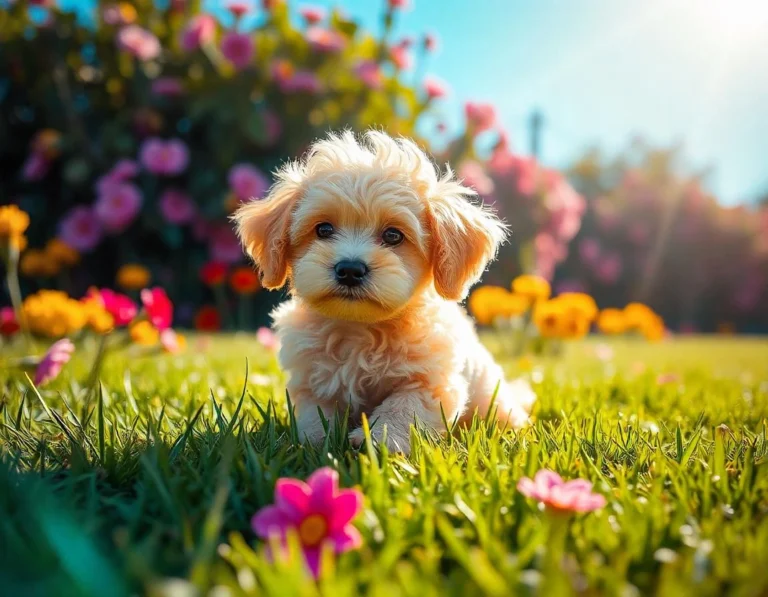
The Tiny Toy Apricot Poodle is a delightful variation of the popular Tiny Toy Poodle, known for its vibrant apricot-colored coat. This variation is just as lovable, intelligent, and playful as other Tiny Toy Poodles, but with the added charm of its stunning coat color. If you’re considering adding one of these affectionate dogs to your family, it’s important to understand the unique features of the Tiny Toy Apricot Poodle and why this color has become a sought-after choice among dog lovers.
Unique Features of Tiny Toy Apricot Poodles
The Tiny Toy Apricot Poodle combines all the best traits of the Toy Poodle breed, with the added beauty of its apricot coat. Just like other Tiny Toy Poodles, these dogs are small, intelligent, and hypoallergenic, making them a great fit for families, singles, and those living in apartments.
Their small size and hypoallergenic coat make them an ideal companion for people with allergies. They shed very little, which helps reduce allergens in the home. These dogs are also known for being intelligent and easy to train, making them excellent candidates for obedience training and even learning tricks. With the right guidance, your Tiny Toy Apricot Poodle will be a well-mannered and loving pet.
Why Apricot is a Sought-After Color for This Breed
The apricot color of the Tiny Toy Poodle is one of the most desirable and eye-catching features for many potential owners. Unlike the standard black or white poodles, apricot poodles have a warm, soft hue that gives them a unique, charming look. This color can vary from a pale cream to a deeper, rich apricot, which is highly appealing to many dog lovers.
This beautiful color, paired with the affectionate and playful nature of the Tiny Toy Poodle, makes the apricot variation particularly popular. People are often drawn to this color because it stands out, while still maintaining the elegant look that poodles are known for.
In addition to its beauty, the apricot coat is just as easy to care for as other poodle colors. Like all poodles, the Tiny Toy Apricot Poodle requires regular grooming to maintain its coat, which can become wavy or curly. Regular brushing and trips to the groomer will keep their coat looking its best, while also preventing matting.
Overall, the Tiny Toy Apricot Poodle offers a stunning blend of appearance, intelligence, and loving nature. Whether you’re looking for a small, hypoallergenic companion dog or simply love the apricot color, this variation is an excellent choice for anyone seeking a playful, affectionate, and easy-to-train dog.
Tiny Toy Poodle Adult
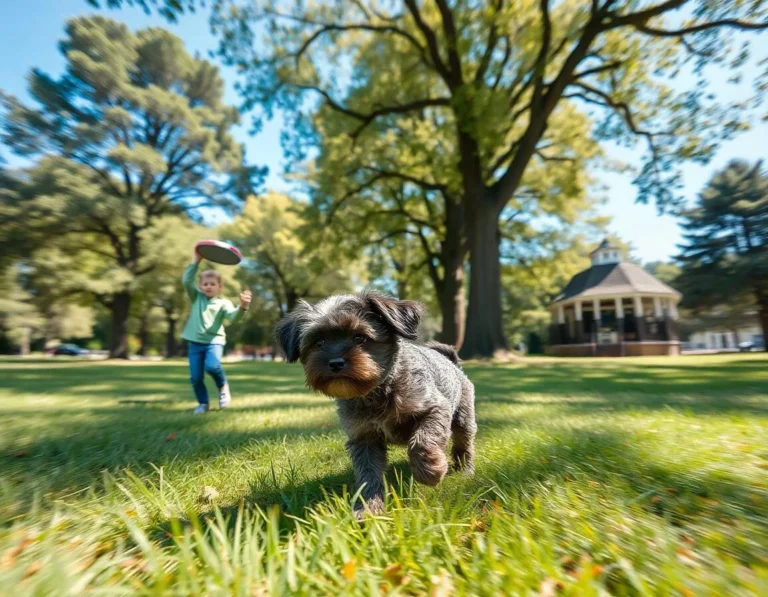
As your Tiny Toy Poodle grows from a playful puppy to a mature adult, you’ll notice some changes in their behavior, size, and overall needs. These small dogs, known for their affectionate nature and intelligence, continue to develop into loving companions. Understanding what to expect as your Tiny Toy Poodle matures will help ensure they remain happy and healthy throughout their life.
What to Expect as Your Tiny Toy Poodle Matures
Tiny Toy Poodles are a toy breed, meaning they remain small throughout their life, but their size is just one aspect of their development. As they transition from puppy to adult, their physical appearance and personality evolve. Typically, adult Tiny Toy Poodles weigh between 4 to 6 pounds and stand about 9 to 10 inches tall. Despite their small size, they maintain a strong, compact body that is both agile and sturdy.
Adult Tiny Toy Poodles also become more settled in their temperament. They are still playful, but their energy levels tend to stabilize as they mature. While puppies are curious and often mischievous, adult Tiny Toy Poodles become more focused, responsive, and easier to train. Their natural intelligence makes them quick learners, so by adulthood, most will have mastered basic commands and even some fun tricks.
Behavioral Changes and Development from Puppy to Adult
The transition from puppy to adult involves behavioral changes as well. As a puppy, a Tiny Toy Poodle may require more attention and socialization, as they learn how to interact with people and other pets. They may be more excitable, but as they grow, their behavior typically becomes more refined.
By the time they reach adulthood, Tiny Toy Poodles are known for being affectionate, loyal, and intelligent. They form strong bonds with their owners and thrive as companion dogs. While they still enjoy playtime and activities, their need for constant stimulation and interaction may decrease. Their trainability remains one of their best traits, and they are likely to be obedient with continued positive reinforcement.
In addition to their behavior, the adult Tiny Toy Poodle’s grooming needs become more routine. They still require regular brushing to prevent mats and tangles in their hypoallergenic coat, but they may have a more consistent grooming schedule as adults.
Overall, a Tiny Toy Poodle in adulthood is a calm, affectionate, and intelligent dog that remains a playful and loyal companion. Their hypoallergenic coat makes them a great choice for people with allergies, and their small size makes them well-suited for apartment living. By understanding the changes that come with maturity, you can continue to provide excellent care for your Tiny Toy Poodle as they grow into a wonderful adult dog.
Tiny Toy Poodle Haircuts
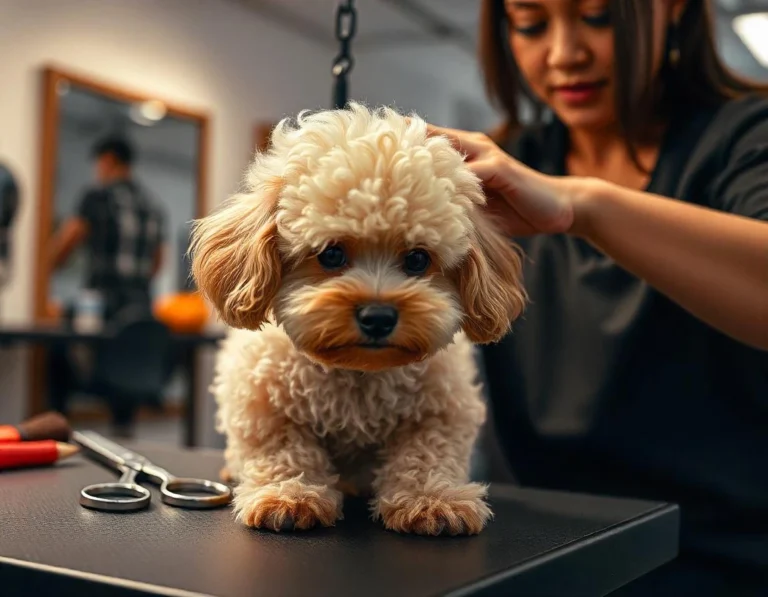
Tiny Toy Poodles are known for their curly, hypoallergenic coats, which require regular grooming to keep them looking their best. As a small dog breed, they have specific haircuts that suit their size and playful, affectionate nature. The right haircut can also help keep their coat healthy and prevent issues like matting. In this section, we’ll discuss some popular haircut styles for Tiny Toy Poodles and share helpful grooming tips.
Popular Haircut Styles for Tiny Toy Poodles
When it comes to Tiny Toy Poodle haircuts, there are several popular styles that suit their small size and lovable temperament. One of the most classic looks for this toy breed is the puppy cut, which is a simple, all-around trim that keeps the coat short and easy to maintain. This style is especially popular for those who want a low-maintenance look without sacrificing the dog’s natural curls.
Another popular option is the teddy bear cut, which leaves the hair slightly longer, creating a fluffy, rounded look that resembles a teddy bear. This cut works well for Tiny Toy Poodles who are affectionate companions and still enjoy being playful. For owners who want a more stylish and elegant look, the lion cut is another option, where the hair is shaved short on the body, while the fur around the neck and head is left longer, giving the dog a “mane” appearance.
Grooming Tips and Maintaining a Curly Coat
Maintaining a Tiny Toy Poodle’s curly coat requires regular grooming to keep it healthy and free from tangles. As hypoallergenic dogs, they tend to shed very little, but their curly hair can easily become matted without proper care. Regular brushing is essential, ideally at least every other day, to prevent tangles and mats from forming. Using a pin brush or a comb with wide teeth can help you untangle any knots without causing discomfort to your dog.
It’s also important to bathe your Tiny Toy Poodle every 3 to 4 weeks to keep their coat fresh and clean. Be sure to use a gentle, dog-specific shampoo to avoid irritating their sensitive skin. After washing, drying your dog thoroughly with a towel and blow-drying with a low heat setting will help maintain their fluffy appearance.
How to Prevent Matting and Tangles
Matting and tangling are common grooming challenges for Tiny Toy Poodles, particularly around the ears, underarms, and around the legs. To prevent these issues, it’s essential to regularly brush their coat, focusing on these problem areas. If you notice any mats, gently work them out with your fingers or a dematting comb before they become too tight and difficult to remove.
Additionally, regular professional grooming can help keep your Tiny Toy Poodle’s coat in top condition. A groomer can trim and shape the hair to avoid mats while ensuring that the dog’s cut is flattering and practical. Maintaining your Tiny Toy Poodle’s grooming schedule and cutting their hair appropriately will help ensure that they stay comfortable, clean, and healthy.
With the right haircut and grooming routine, your Tiny Toy Poodle will look adorable and feel great. Regular care will also help manage their hypoallergenic coat, making them a wonderful companion dog for families and apartment dwellers.
Tiny Toy Poodle for Sale

When looking for a Tiny Toy Poodle for sale, it’s important to find a reputable breeder who adheres to high breeding standards. A responsible breeder will ensure the health and well-being of the puppies, provide information on the puppy’s parents, and be transparent about any health screenings. Tiny Toy Poodles typically range in price depending on factors like pedigree, size, and color. Expect to pay anywhere from $1,000 to $3,000 for a well-bred puppy. At Toy and Poodle Puppies, we focus on raising healthy, well-socialized, hypoallergenic puppies that make perfect companion dogs. Always be cautious when purchasing from sources like pet stores or online platforms, as they may not prioritize ethical breeding practices. Look for breeders who provide a clean environment, ongoing care, and a clear history of the dog’s health and temperament to ensure you’re bringing home a happy, healthy Tiny Toy Poodle.
FAQs
What Is A Tiny Toy Poodle?
A Tiny Toy Poodle is a smaller variety of the Toy Poodle, measuring between 6–10 inches in height and weighing around 4–6 pounds. They share the same playful, intelligent temperament as the Toy Poodle but are more compact.
How Big Does A Tiny Toy Poodle Get?
A Tiny Toy Poodle typically grows to a height of 6–10 inches and weighs 4–6 pounds when fully grown, making it one of the smallest dog breeds within the Poodle family.
What’s The Difference Between A Tiny Toy Poodle And A Toy Poodle?
The Tiny Toy Poodle is slightly smaller than the standard Toy Poodle. The Tiny Toy Poodle usually measures under 10 inches tall, while the Toy Poodle can reach up to 10 inches. Both share similar characteristics but vary in size.
What Is The Lifespan Of A Tiny Toy Poodle?
Tiny Toy Poodles typically have a lifespan of 12–18 years, which is relatively long for such small dogs, especially when they receive proper care, including a nutritious diet and regular vet visits.
Is There A Tiny Toy Poodle?
Yes, the Tiny Toy Poodle is a smaller variant of the Toy Poodle, though it is not an officially recognized breed by all breeders. It’s known for being compact but still retaining the same playful and intelligent traits of the Toy Poodle.
How Much Does A Tiny Toy Poodle Cost?
The price of a Tiny Toy Poodle can range from $1,200 to $3,000, depending on the breeder, coat color, and pedigree. It is always best to choose a reputable breeder to ensure a healthy puppy.
What Are The Grooming Needs For A Tiny Toy Poodle?
Tiny Toy Poodles have a curly, hypoallergenic coat that requires regular grooming. You’ll need to brush their coat daily to avoid matting and take them to the groomer every 4-6 weeks for a trim or style, such as a puppy cut.
Are Tiny Toy Poodles Hypoallergenic?
Yes, Tiny Toy Poodles are considered hypoallergenic. Their curly coat minimizes shedding, reducing the spread of dander, making them a suitable option for people with allergies.
Which Is Smaller, Teacup Or Toy Poodle?
The Teacup Poodle is typically smaller than the Toy Poodle. Teacup Poodles are under 6 inches tall and weigh as little as 3 pounds, while Toy Poodles measure up to 10 inches tall and weigh between 4–6 pounds.
How Do I Tell The Difference Between A Tiny Toy Poodle And A Teacup Poodle?
A Teacup Poodle is smaller than a Tiny Toy Poodle. Teacup Poodles are generally under 6 inches tall and weigh 3 pounds or less, while Tiny Toy Poodles range from 6–10 inches tall and weigh 4–6 pounds.








